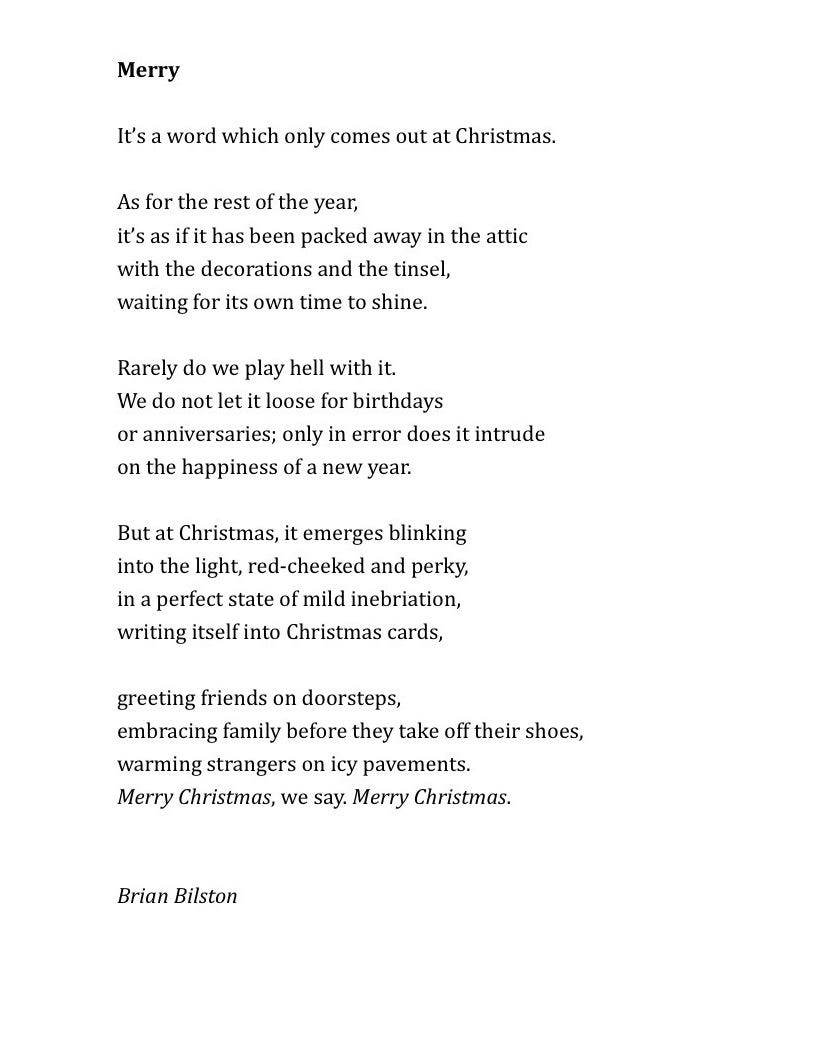Eat, Drink and Be MERRY!
Why is Christmas the only holiday that uses 'merry' instead of 'happy'?
Difficult one to answer! Here are some ideas!
With origins in Middle English, it means delightful, pleasant, full of cheerfulness. Merry could refer to the weather ( fine) or herbs ( pleasant tasting) or handsome (of dress). If you had ‘merry-about’, you had enjoyed some naughties!!
"We Wish You a Merry Christmas" is an English Christmas carol. The song is thought to date back to the 16th or 17th century but reflects on the witty carolers of the Victorian era and their inclination towards a traditional "Christmas dessert." It is also connected to the regeneration of the tradition known as "caroling," a practice that was banned in the churches during the Middle Ages. At that time, carollers wanted food like figgy pudding to keep their tummies full and spirits high on cold winter evenings.
‘Making merry’ is a historical phrase describing having a good time with everyone joining in the merriment. Perhaps, like the word ‘gay’, which was originally meant to be lighthearted and jolly but has over time been hijacked to be used with another connotation. Whilst being tipsy can, sometimes, add to feeling merry, it is not its original meaning and there are many people who appear to think that it only means to indulge excessively in alcohol.
The phrase "Merry Christmas" became more popular after it appeared in Charles Dickens' A Christmas Carol in 1843. The phrase also appeared on the first commercially-sold Christmas card that year.
From 1952, Queen Elizabeth II used the phrase "Happy Christmas" in her broadcasts to her subjects, which helped make it more popular in the United Kingdom.
I will leave you with the following poem by Brian Bilston






